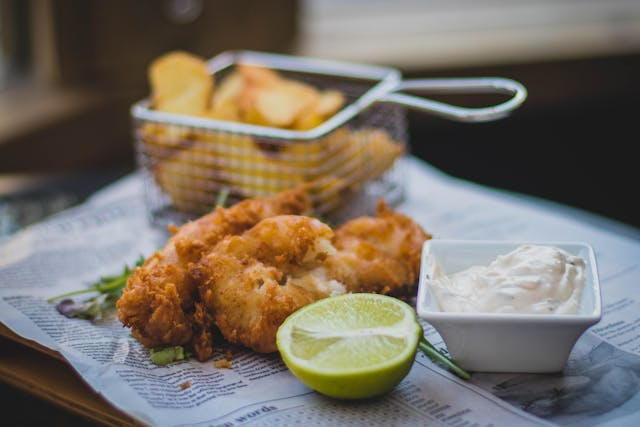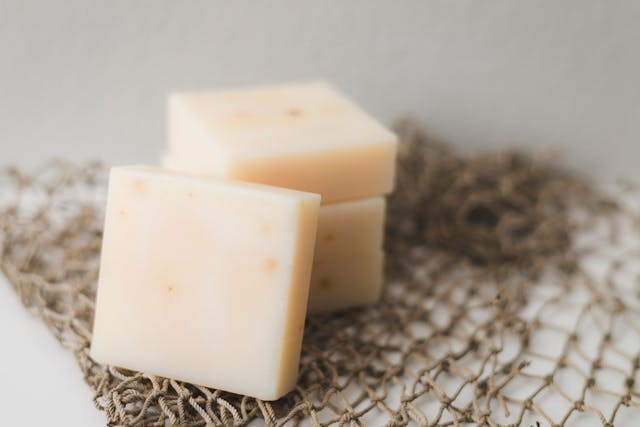
These are the Major Gallstones Foods to Avoid for Prevention
Time to read 3 min
Time to read 3 min
You should definitely avoid consuming fatty meats, high fat gravies, and processed foods to ensure that you don't have issues with the gallbladder. You can also prevent gallstones by following a diet that is rich in minerals, vitamins, proteins, and simple carbohydrates.
Through prevention, you can allow your gallbladder to heal via medication and treatment, as well as focus on long-term changes in your lifestyle. You can also prevent irritation, inflammation, bile secretion issues, and other problems by changing your approach to diet and lifestyle management.
If you have a history of gallbladder problems or have had stones in your gallbladder, then these foods should be avoided long-term. You can switch to a healthy diet that consists of natural foods that are rich in minerals and vitamins.
Foods that are highly processed don't contain the necessary nutrients for our gallbladders to function normally. They may also contain high amounts of saturated fats that aren't good for our gallbladder. Highly processed foods also lack nutrients, which can lead to secondary issues.
Friend foods contain trans fats that can create issues with the gallbladder. You can switch to all-natural foods to ensure that you're not giving your body high amounts of unhealthy fats. Fried foods can also disrupt the natural functioning of the gallbladder with high amounts of cholesterol.
High in fat dairy products should be avoided when you've had gallbladder problems in the past. The full fat content of the cream or dairy products are difficult to process in the gallbladder, which can lead to issues with bile secretion and irritation.
Thick gravies at parties, outdoor events, and some restaurants, can lead to problems with fat metabolization. The high amounts of saturated and trans fats present in thick gravies can also lead to problems with the gallbladder.
Unhealthy oils can contain high amounts of triglycerides which can lead to irritation, inflammation, and issues in the gallbladder. If you're recovering from surgery or want to prevent gallstones from emerging, then switching to healthier oils is the right approach.
Issues of the gallbladder can be prevented in many cases by opting for a diet that is healthier, all-natural, low-fat, and rich in nutrients. This can help your gallbladder function better, and secrete bile normally to process foods.
The risk of developing gallstones is significantly lowered when you follow a diet that is rich in nutrients and is lower in refined fat. The gallbladder can easily process low fat foods, such as the ones included below, and you can lower the risk of gallstones at the same time.
It is important to get your vitamin C, B, and K through your diet so that you can improve the functioning of your gallbladder long-term. Fruits and vegetables also contain minerals that are required for proper functioning of the digestive system.
Potatoes, grains, and fruits, can be included in your diet as simple carbohydrates are easier to metabolize. They can also provide much needed energy to your system, and prevent the emergence of gallbladder issues.
Foods that are higher in fibre can help your body process digestion better. You can also allow your body to function optimally when you have enough fibre through natural sources. Multi-grain breads and aatas, can help improve nutrient absorption as well.
Healthy fats from avocados, seeds, nuts, and flax, can help your body optimize digestion better. The healthy fats are neuro-protective and prevent the emergence of gallbladder issues. They can also be ideal alternatives to unhealthy trans fats.
You can choose lean cuts and low-fat meat products, so that you can lower your overall cholesterol in the body. This can help your gallbladder improve its functioning and decrease the risk factor of developing problems.
You can opt for peas, beans, legumes, and other plant proteins to improve your overall strength and vitality. You can easily digest them and acquire the additional nutrients present in them that can help with metabolization.
* * Medical Disclaimer - The following information is for educational purposes only. No information provided on this website, including text, graphic, and images, are intended as substitutes for professional medical advice. Please consult with your doctor about specific medical advice pertaining to your condition(s).

